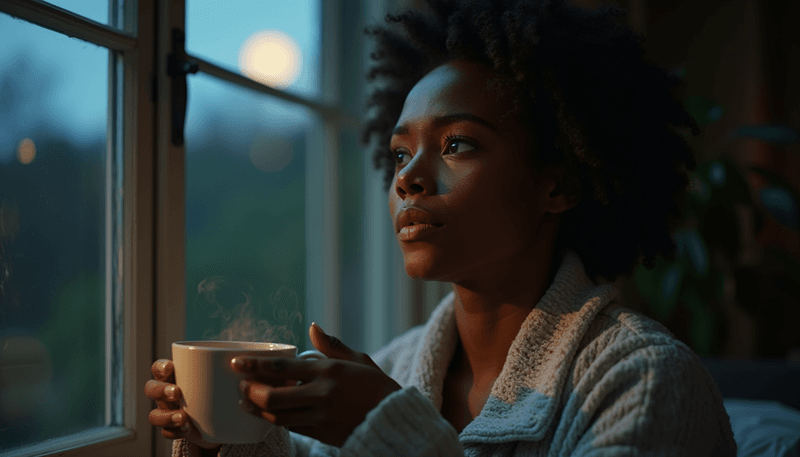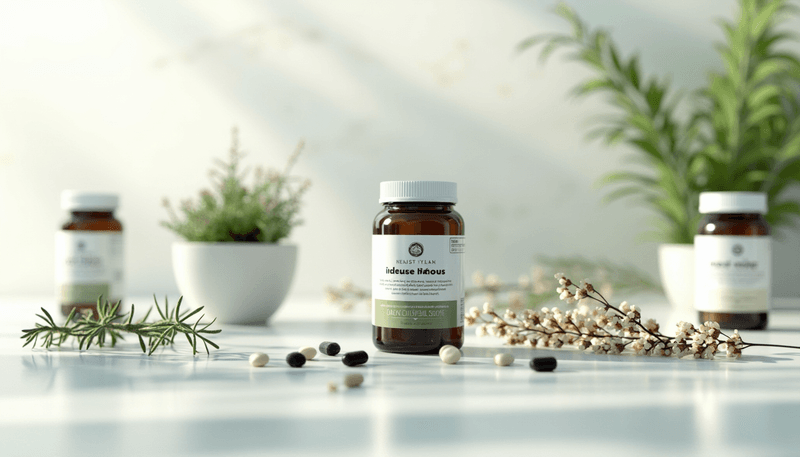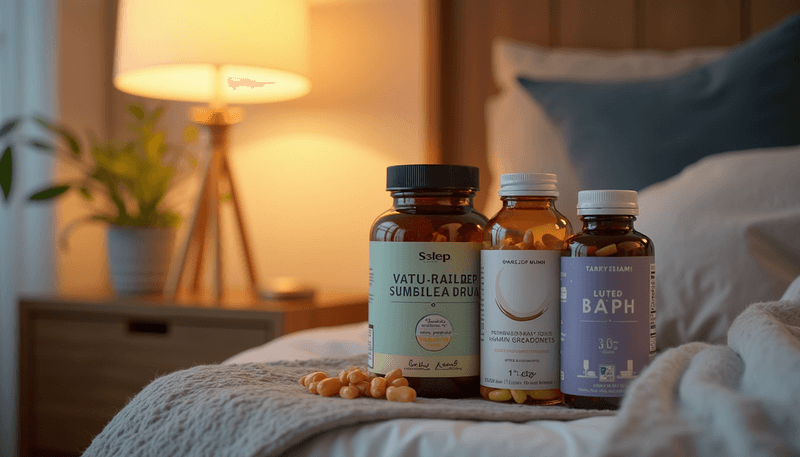Food Fixes for Menopause Sleep Problems

If you're lying awake at 3 AM, staring at the ceiling and wondering why menopause has turned your once-peaceful nights into a frustrating cycle of wakeful hours, you're not alone. A groundbreaking systematic review published in Nutrition Reviews reveals promising natural solutions for better sleep during menopause. As a women's health researcher who has personally navigated these challenges, I'm excited to share these evidence-based findings that could transform your nights.
The Power of Isoflavones: Nature's Sleep Aid
Imagine your body's sleep-wake cycle as a delicate symphony, with hormones acting as the conductors. During menopause, when estrogen levels decline, this symphony can become discordant. Here's where isoflavones - natural compounds found in soy products - step in as assistant conductors.
Multiple studies show that isoflavones can significantly improve sleep quality during menopause. These plant-based compounds work by mimicking estrogen in our bodies, helping to restore balance to our sleep patterns. The research suggests a dose-dependent effect - meaning higher doses (around 25mg daily) tend to work better than lower doses.
"Have you noticed how some nights feel more restless than others? Consider tracking your soy intake alongside your sleep quality to spot any patterns."
Practical Implementation:
- Start your day with soy milk in your morning coffee
- Add edamame to your lunch salad
- Include tofu in your dinner stir-fry
- Try roasted soybeans as a healthy snack
Black Cohosh: The Ancient Sleep Supporter
Black cohosh, a traditional herb used for centuries, has emerged as another promising option for improving both subjective and objective sleep quality. Think of it as a gentle reset button for your sleep architecture.
The science behind black cohosh is fascinating - it appears to influence key neurotransmitters like serotonin and gamma-aminobutyric acid (GABA), which are essential for sleep regulation. Studies show it can reduce the time spent awake after initially falling asleep and improve overall sleep efficiency.
Research-Backed Usage Tips:
- Look for standardized supplements (typically 20mg twice daily)
- Take with meals to minimize potential stomach upset
- Be patient - benefits often appear after several weeks of consistent use
- Consider combining with good sleep hygiene practices
Combination Approaches: The Symphony of Solutions
Just as a beautiful meal combines multiple ingredients, some of the most effective sleep solutions involve combining different nutritional interventions. The research highlights several promising combinations:
- Valerian root + lemon balm
- Pomegranate seed oil
- Pollen extracts
- Organic Maca
"What combinations have you tried? Sometimes the magic lies in finding your personal perfect blend."
Key Considerations for Combinations:
- Start with one intervention at a time to identify what works best for you
- Keep a sleep diary to track effectiveness
- Discuss potential interactions with your healthcare provider
- Be consistent with timing and dosage
The science is clear - nutritional interventions can make a real difference in managing menopause-related sleep disturbances. However, it's important to note that what works wonderfully for one woman might not work as well for another. The key is to approach these solutions with patience and consistency.
Ready to take the first step? Choose one intervention from this blog - perhaps starting with soy isoflavones - and commit to trying it consistently for one month while keeping a simple sleep diary.
Final Thoughts: While these nutritional interventions show promise, they work best as part of a comprehensive approach to sleep health. Combine them with good sleep hygiene, regular exercise, and stress management for optimal results. Always consult with your healthcare provider before starting any new supplement regimen, especially if you're taking other medications.

Amelia Grace Okonkwo
Amelia Grace Okonkwo is a freelance health writer and author with over 15 years of experience in health journalism, specializing in women's health and autoimmune disorders. With a background in biology and a Master’s in Public Health from Johns Hopkins, she combines scientific accuracy with a storytelling approach to make health information accessible and empowering. Amelia is known for her bestselling book, "The Skin We're In," which explores autoimmune disorders and their impact. She is passionate about delivering practical health insights for women, addressing topics from midlife wellness to mental health.







